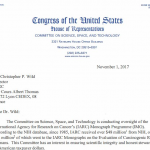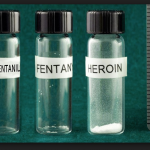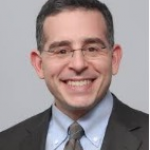In 2015, the American Council on Science and Health joined every reputable science body in being critical of yet another International Agency for Research on Cancer (IARC) monograph. In recent years they had become prone to selectively choosing studies to include in their analyses, almost as if they predetermined a conclusion and then found studies to match it.
Policy & Ethics
The EPA insists that poor air quality in America is a terrible killer and must be regulated regardless of the economic burden imposed. But with no evidence to justify such a claim, this is nothing more than a Noble Lie.
Steve Milloy, a biostatistician and lawyer, conducted a study to examine if small particulate matter in air pollution was linked to acute deaths. Using publicly available death certificates, he found no such correlation. Furthermore, using hospital discharge data, he found no link between ozone levels and asthma attacks in the Sacramento area.
A short while ago, despite two hurricanes and a shooting in Las Vegas, advocacy journalists in North Carolina were spending time attempting to Gerrymander the word "conservationist" in order to make sure an expert in favor of natural gas could be excluded from a committee. Mostly because he lacked their key criterion, a donation to Sierra Club.
Leverage. Leveraging. While these might seem like terms associated with Hollywood movies like "Wall Street", "Wall Street: Money Never Sleeps" or "The Wolf of Wall Street", the reality is that leveraging is an integral part of academic science and policy research in the 21st century. With fiscal demands upon governments at the state/provincial and federal levels having increased dramatically over the past 20-30 years, innovative strategies were needed to ensure that the public sector’s high level of research (not to mention quality and importance) were not sacrificed.
A recent report on a pilot program to increase the availability of Advanced Practice Registered Nurses underscores the current anti-doctor climate in healthcare. Under-valuing physicians, and replacing them with substandard care, ultimately places the patient at risk. And that, my friends, is unethical.
Let's discuss the opioid crisis from a physician-prescriber perspective, and what surgeons can do now to help our patients.
A mixed success record, abuse, regulatory mismanagement, and unintended consequences. Combined, these make the case that the Endangered Species Act is not working as intended. It must adapt or face extinction.
Two organic chemists in China are in all sorts of trouble after being charged with running factories that make fentanyl, the drug this is killing Americans in droves, and its stronger chemical cousins. The chemists based their choice of drugs to make upon the legality of the drug in the US. Most of them are now legal. Here's why.
Doctors, like any other human being, are capable of snapping. In a viral video, a Florida physician is seen unleashing his fury on a patient in his waiting room. But before casting judgment, here are a few points to consider.
Dr. Andrew Kolodny, the executive director of Physicians for Responsible Opioid Prescribing, has been waging war on prescription pain medications for years. His recently-published piece, "The Opioid Epidemic in 6 Charts," is full of inaccuracies – intentional or otherwise.
Researchers at Harvard's Belfer Center scoured the globe for whatever was publicly available on North Korea's biological weapons program. Referencing news articles, journal papers, expert interviews and government reports, the team assembled a comprehensive study of the knowns and unknowns. Here are the main findings.
With respect to the state of England's National Health Service and its rapidly eroding quality of care, the bad news just keeps coming. Recently, its new chief hospital inspector declared that, among other serious issues, current practices endanger patients.











